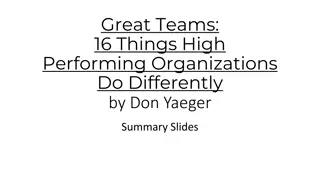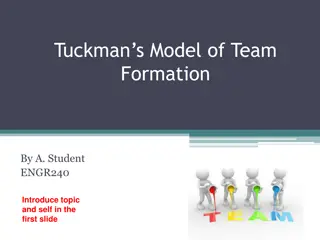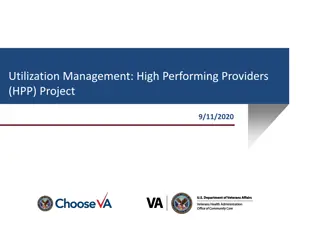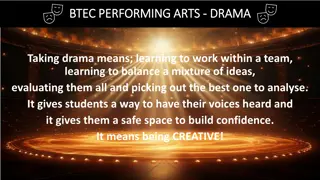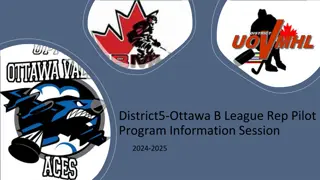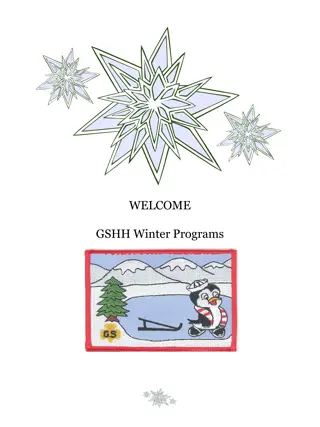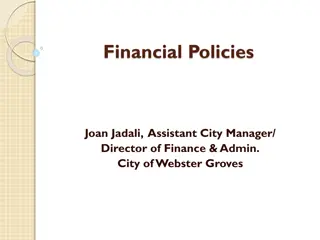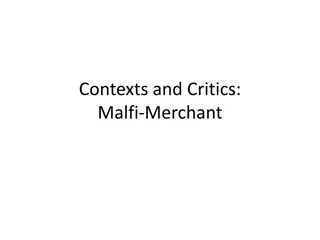Strategies for Building High-Performing Teams in Winter 2024 with Bruce F. Webster
Explore the dynamics of creating productive teams in CS 428 - Peopleware course during Winter 2024. Learn about team interactions, jelled team concepts, teamicide, fostering teamwork, and chemistry for team formation. Gain insights on effective team management strategies presented by Bruce F. Webster on Mondays from 3:00 to 5:30 PM.
Download Presentation

Please find below an Image/Link to download the presentation.
The content on the website is provided AS IS for your information and personal use only. It may not be sold, licensed, or shared on other websites without obtaining consent from the author. Download presentation by click this link. If you encounter any issues during the download, it is possible that the publisher has removed the file from their server.
E N D
Presentation Transcript
CS 428 Peopleware: Parts IV- VI (Chs 21-39) Winter 2024 Bruce F. Webster
Part IV: Growing Productive Teams In the best work groups, the ones in which people have the most fun and perform at their upper limits, team interactions are everything. This is as major a challenge as finding the best people: getting them to work together as a team CS 428 - WINTER 2024 MONDAYS, 3:00 5:30 PM BRUCE F. WEBSTER 02/26/2024 2
Chapters 21/22: The whole is greater than the sum of the parts / The Black Team Concept of the jelled team : alignment of personal and team goals By contrast, teams are not automatically motivated (or jelled) by company goals and may be disdainful of them Key aspect of a jelled team Low turnover Strong sense of identity Sense of eliteness Joint ownership of product Obvious enjoyment The Black Team: real-world example CS 428 - WINTER 2024 MONDAYS, 3:00 5:30 PM BRUCE F. WEBSTER 02/26/2024 3
Chapters 23-25: Teamicide / Teamicide revisited / Competition Defensive management: distrust and micromanagement Bureaucracy: paperwork and busy work Physical separation: dividing a team up Fragmentation of people s time: too many projects, tasks Quality reduction of the product: shipping a bad product Phony deadlines: based on company desires, not reality Clique control: breaking up teams out of fear of loss of control Most organizations doesn t set out consciously to kill teams. They just act that way. Phony motivation Extended overtime Pitting team members against each other (deliberately or inadvertently) CS 428 - WINTER 2024 MONDAYS, 3:00 5:30 PM BRUCE F. WEBSTER 02/26/2024 4
Chapters 26-27: Spaghetti Dinner / Open Kimono Provide frequent easy opportunities for the team to succeed together Show trust in the team by not protecting yourself from their mistakes Get out of their hair or send them away for a while Encourage productive rule-breaking Allow teams to self-organize independent of a particular project Trust the natural authority of individual team members CS 428 - WINTER 2024 MONDAYS, 3:00 5:30 PM BRUCE F. WEBSTER 02/26/2024 5
Chapters 28: Chemistry for Team Formation Make a cult of quality Provide lots of satisfying closure Build a sense of eliteness Preserve and protect successful teams Provide strategic, but not tactical, direction Allow and encourage heterogeneity CS 428 - WINTER 2024 MONDAYS, 3:00 5:30 PM BRUCE F. WEBSTER 02/26/2024 6
Part V: Fertile Soil Chapter 29: The Self-Healing System Keys: training, tools, peer review Chapter 30: Dancing with Risk As per Armour, greater risk leads to greater reward At the same time, we need to anticipate and manage the risk of project failure Chapter 31: Meetings, Monologues, and Conversations If the goal isn t to reach a decision, then don t hold the meeting Chapter 32: The Ultimate Management Sin Is wasting people s time Chapter 33: E(vil)-Mail: again, wasting people s time CS 428 - WINTER 2024 MONDAYS, 3:00 5:30 PM BRUCE F. WEBSTER 02/26/2024 7
Part V: Fertile Soil (Cont.) Chapter 34: Making Change Possible (when people hate change) Machiavelli and change Improvement requires change, but it is common to change without any improvement Change requires chaos, but management fights against chaos Chapter 35: Organizational Learning [Organizational] learning is limited by an organization s ability to keep its [best] people Chapter 36: The Making of Community The jelled team concept, but on an organizational level Even more difficult, fragile, and prone to subversion or decay CS 428 - WINTER 2024 MONDAYS, 3:00 5:30 PM BRUCE F. WEBSTER 02/26/2024 8
Part VI: Its supposed to be fun to work here Chapter 37: Chaos and Order Progress comes from constructive re-introduction of small amounts of disorder Pilot projects War games Brainstorming Provocative training experiences Training, trips, conferences, celebrations, retreats Chapter 38: Free Electrons Giving your best people room to do new things Chapter 39: Holgar Dansk: Waking the sleeping giant within the company CS 428 - WINTER 2024 MONDAYS, 3:00 5:30 PM BRUCE F. WEBSTER 02/26/2024 9



